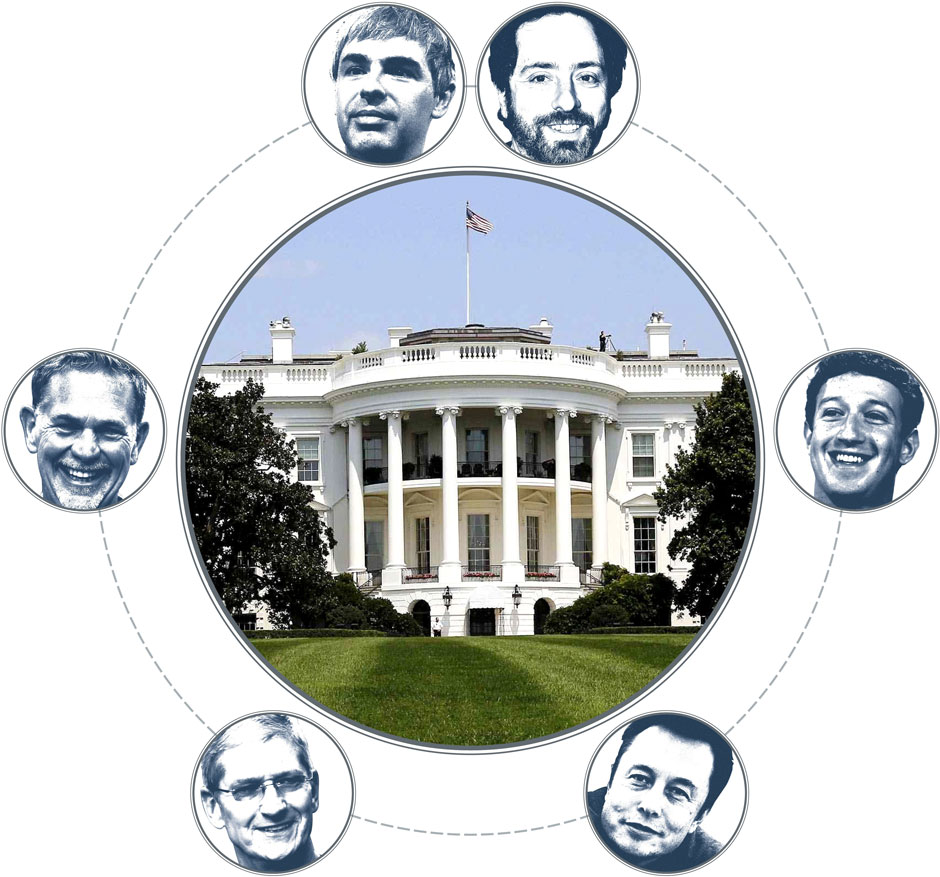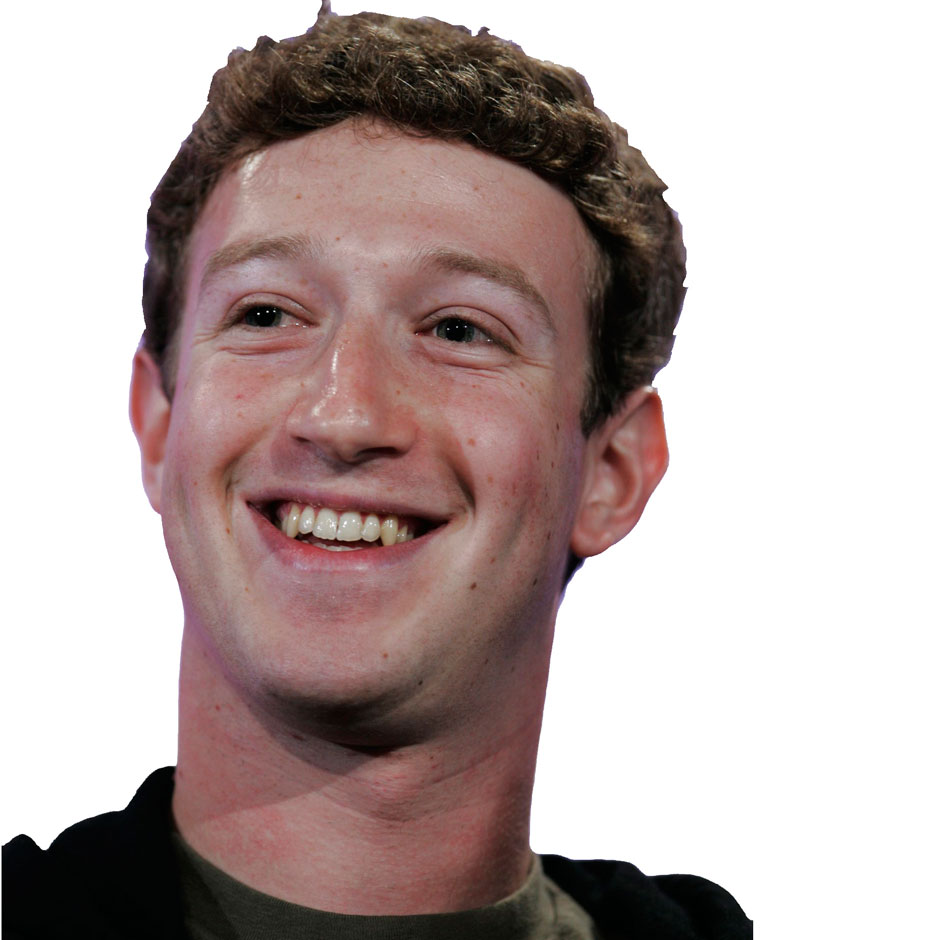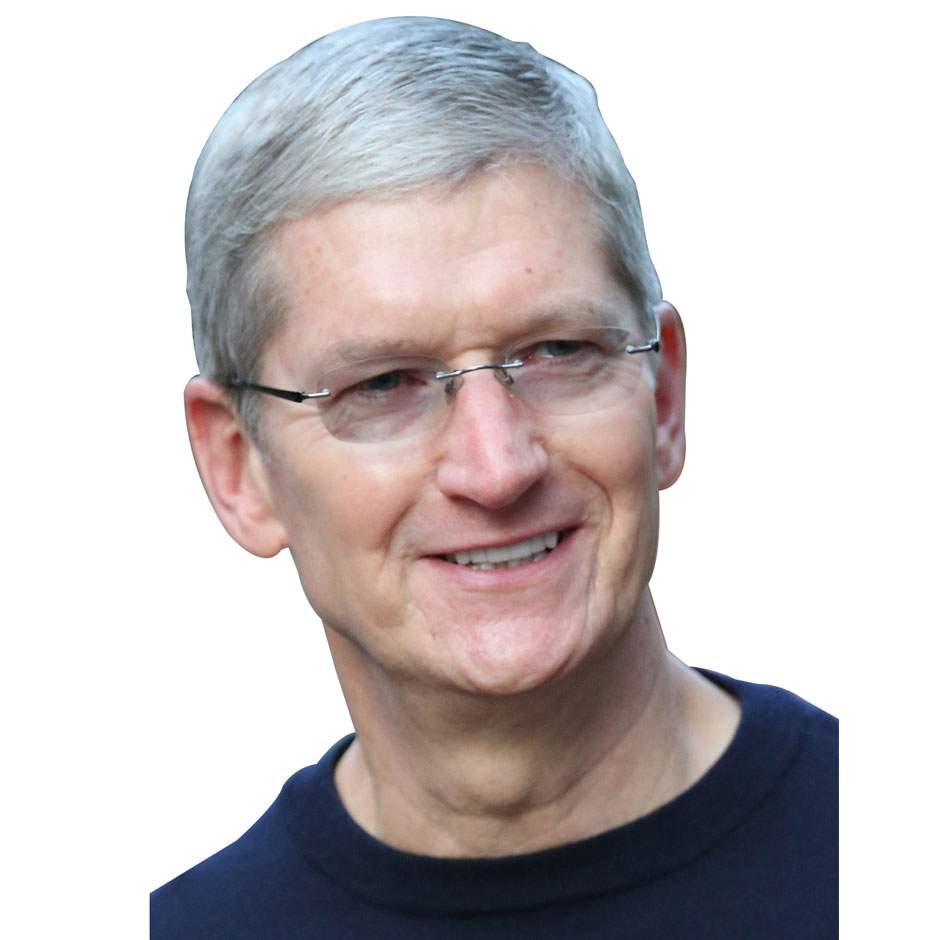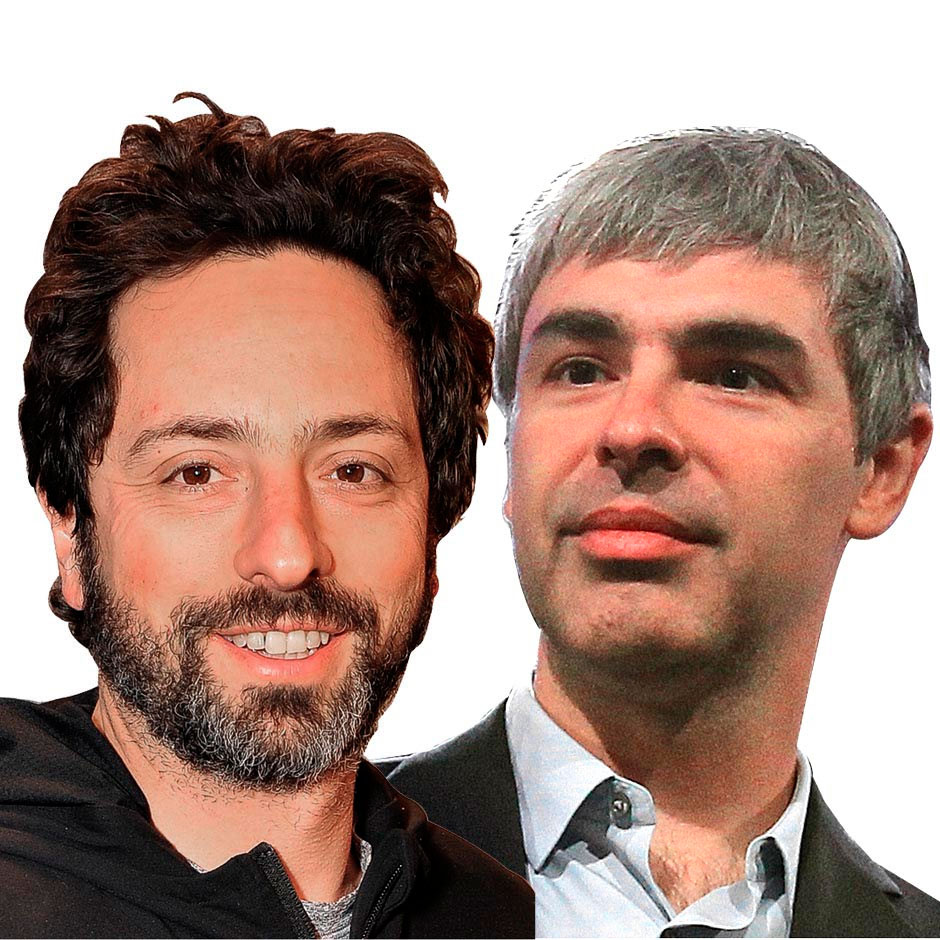
Earlier this month, a phalanx of private jets descended on Sun Valley, Idaho, carrying the technology industry’s gilded class. They arrived at the resort town for an annual get-together nicknamed “the billionaire’s summer camp.”
But among the billionaires, there mingled another powerful demographic – presidential hopeful Chris Christie showed up, as did Defense Secretary Ashton Carter and former New York mayor Michael Bloomberg. Most years, the tech titans who come to this conference like to talk shop. But this year, on the eve of what is expected to be the most expensive presidential primary season ever, they also talked politics.
Just a decade ago, many of the best-known tech firms in the United States not only eschewed traditional lobbying, but actively opposed it. Today, Silicon Valley is one of the most powerful lobbying forces in Washington. On issues ranging from immigration reform to tax loopholes, companies such as Apple, Google and Facebook now function as Beltway insiders, spending tens of millions to get their way. The industry whose technology helped change the way politics is practised in America now hopes its wallet can do the same.

Mark Zuckerberg
Net worth: $33.4-billion
Mark Zuckerberg has joined a chorus of tech-company heads lobbying for immigration reform - because Facebook has more jobs than there are skilled workers to fill them. As such, he has been outspoken on making it easier for skilled labour to enter the U.S.
The result is a new, heavy-spending political power centre – one that defies the traditional Democratic-Republican dividing lines. Indeed, Silicon Valley’s lobbying philosophy – extremely liberal on social issues but equally as committed to low taxes and deregulation – may well prove an alluring blueprint for Republican strategists looking to revitalize the party.
“By and large, employees of tech companies – from junior employees to CEOs – are liberal… and because of that, I think the Democratic Party takes the tech industry for granted,” says Julie Samuels, executive director of Engine, a firm that helps Silicon Valley startups advocate on policy issues at the state and national levels. “But it won’t be long before we see a Republican who’s very liberal on social issues take [Silicon Valley] by storm.”
There is an obvious caveat here: The Republican base, which dominates the primary process, tilts heavily right on social issues and seems unlikely to change any time soon. But should a viable candidate come along who is willing to incur the wrath of those voters, Silicon Valley would be ready to listen.
“As far as electoral politics is concerned, the tech industry is up for grabs,” Ms. Samuels said.

Tim Cook
APPLE
Net worth: $500-million
In addition to Apple's myriad lobbying efforts in areas ranging from electronic payment regulations to immigration reform, Tim Cook has been perhaps the most powerful and outspoken corporate proponent of gay rights in the country.
For years, the very notion of showering politicians with money in exchange for a friendly ear was considered anathema to Silicon Valley’s central ethos – one in which engineering and problem-solving, not politics, was the only priority.
But that ideological high ground proved more and more difficult to hold as the Web’s startups grew into mammoth multinationals. For the first few years of its existence, Google barely spent any money on lobbying. By 2010, facing myriad patent lawsuits and cognizant of Microsoft’s billion-dollar anti-trust headaches of the late 1990s, the Web giant was spending $5-million a year. In 2014, it spent three times that much, the most of any tech company in the country.
“Most of these companies are libertarian in outlook and don’t like any regulation at all,” says John Simpson, director of the Privacy project at Consumer Watchdog, which monitors corporate lobbying efforts. “They feel they’ve got to be players. And they’ve got enough money now to throw around like drunken sailors.”
The federal numbers only paint a partial picture of Silicon Valley’s political reach. That’s because much of the companies’ lobbying – for example, on issues such as regulation of direct-to-consumer automobile sales or the rules related to self-driving cars – take place at a state-by-state level. The lobbying amounts also don’t take into account the millions that tech companies spend funding individual candidates (some companies, such as Google, have their own political action committees). And even that isn’t everything – Silicon Valley giants spend millions more funding think tanks and conferences designed to tackle policy issues in which the tech industry has a stake.

Larry Page and Sergey Brin
Net worth: $29.2-billion
The co-founders have always been obsessed with big ideas, such as the quest to prolong life spans – all of which are likely to create all manner of regulatory nightmares. But the two co-founders' longest-running area of interest has been environmental issues, and increased efforts to combat climate change.
Many of the tech titans’ pet issues relate directly to Silicon Valley’s own corporate needs. Facebook CEO Mark Zuckerberg has become one of the most vocal supporters of immigration reform, even founding an advocacy organization dedicated to the cause. But it is likely his position has something to do with the fact that, throughout the U.S. tech industry, companies have been in dire need of more skilled foreign labour than the current visa regime allows.
A similar theme is evident in the debate over net neutrality. A host of tech companies lobbied vehemently for Washington to uphold the principle that all content on the Internet should be treated equally – not simply because they believed the integrity of the Web was at stake, but also because companies such as Google and Netflix stood to lose millions if traditional cable and Internet providers suddenly had the power to treat their services differently.

Reed Hastings
NETFLIX
Net worth: $1.26-billion
In large part because it makes a huge difference to the profitability of his company, Hastings has been one of the loudest supporters of measures to keep traditional corporate players (read: the big cable and Internet providers) from treating different types of Internet content in different ways
But more than any other issue, tech industry lobbying has focused squarely on deregulation. Convinced that many of the current laws are hopelessly outdated in the Internet age, Silicon Valley has campaigned furiously for Washington to simply get out of the way. In recent months, major tech players such as Uber have employed an even more aggressive version of that strategy – setting up shop in cities where current regulation prohibits the company’s services, confident that it has enough money and clout to outspend and outmanoeuvre the local government. On more than one occasion, the strategy worked.
But the valley’s new-found appetite for lobbying presents the industry with a fundamental challenge. Many of the biggest proponents of decreased government regulation – including Apple CEO Tim Cook and Google co-founders Larry Page and Sergey Brin – are also vocally liberal on social issues such as environmental protection and gay rights. But many politicians who are all in favour of cutting as much red tape as possible don’t often tend to share the tech executives’ social views.
“The question I don’t think anyone has an answer to yet is how does the tech industry compete successfully in politics while staying true to its ethos,” Ms. Samuels says.

Elon Musk
TESLA
Net worth: $12-billion
By dangling his myriad companies' new headquarters (and the jobs that come with them) in front of several states, Musk has managed to make huge strides in getting various local governments to make huge concessions in the areas of deregulation and tax breaks – perhaps his two biggest area of focus.
That might be why, in the last few months, Republican presidential hopeful Rand Paul has started building a campaign outpost in the Bay Area. If early polls are to be believed, the U.S. senator from Kentucky has almost no chance to secure the Republican nomination. And yet his central message – a distaste for most forms of taxation and regulation, and a somewhat less absolutist view on some social issues than many of his Republican opponents – has resonated among some in the valley. Far from the ideal candidate, Mr. Paul nonetheless represents an untapped opportunity for America’s right-wing political ranks – the chance to woo one of the wealthiest and, suddenly, most politically active industries in the country.
“We’ve seen Republicans coming out to the valley,” Ms. Samuels says. “Rand Paul made a huge push with his anti-regulation theme. On a lot of corporate issues, there’s alignment between the tech industry and Republicans.”
Graphic cards by Trish McAlaster and Terra Ciolfe